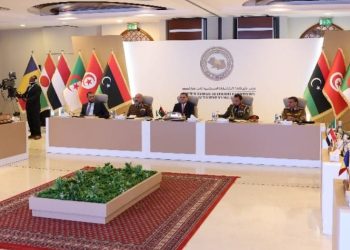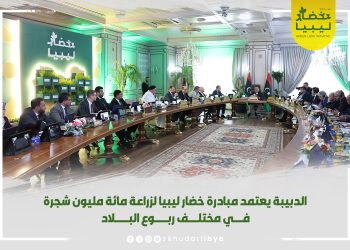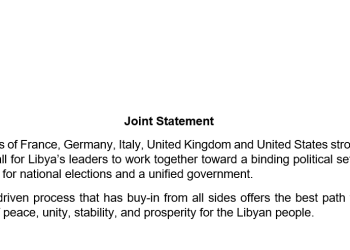By Libya Herald reporter.

Tunis, 2 June 2017:
Prince Mohammed El-Senussi, the son of the late Crown Prince Hassan El-Rida, has called on the international community not to lift the arms embargo on Libya or the freeze on LIA assets.
With the country in chaos and factions fighting each other for control of its wealth, it would be “irresponsible madness” to do so, he says.
In a statement published this week, he noted that the arms embargo imposed by the UN Security Council in 2011 had had limited impact because Libya was already awash with arms and also because regional states have ignored it by providing weapons and ammunition to their proxy militias in the country.
He was believed to be referring to Egypt, the UAE, Turkey and Qatar.
As a result of the weapons proliferation, the civil war continues and it has been a “breeding ground” for extremists, he stated. Attacks by militias have also resulted in civilian casualties, he added.
Referring to calls by both the internationally-recognised Government of National Accord head by Faiez Serraj and the rival Bieda-based interim government of Abdullah Al-Thinni for an end to the embargo in order to fight terrorism, he said that to do so “would be premature and a disaster inside and outside Libya”.
As for the freeze on LIA funds estimated at $68 billion, there should be no change there either, he insisted.
Pointing out that the Security Council lifted the freeze on Central Bank and Treasury funds worth some $110 billion at the end of 2011, the money had been wasted with little economic impact.
“Moreover, the funds have been used to stoke conflict and division,” he said.
The same would happen to the LIA funds if the freeze were removed.
“If the LIA assets are unfrozen they will undoubtedly be stolen, squandered, or at best mismanaged,” he says. As such it would help fuel the conflict, he warned. The factions had their eyes both on power and “the prospect of access to the billions set aside for future generations”.
He blamed foreign governments as well.
“It is no secret that this conflict is a struggle by political factions and their international backers for power and control over Libya’s assets. Enthusiastic young people from all sides have been duped and mobilised to defend those hell-bent on controlling Libya’s assets. The interests of ordinary Libyan people are of no interest to these factions.”
Money and weapons were driving the Libya crisis. To end it, these causes had to be “neutralised”.
“The embargo on arms and the freeze on assets must continue” until there was a single, stable, democratically elected government in place that represented all Libyans.
Many Libyan monarchists want Prince Mohammed to be king of Libya. He, however, says he has no involvement in the country’s politics, acting simply as “a voice and source of support” for fellow Libyans.









